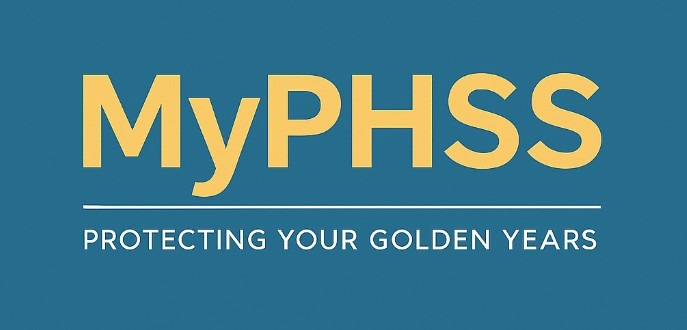No matter how old you are or where you live, the world is changing right in front of our eyes, whether we like it or not. We are now at a point where Artificial Intelligence (AI) is creeping into every aspect of our lives. If you have Original Medicare, this article, “New Medicare Program Called ‘WISER’ Is Starting in 2026,” explains a new pilot program that the Centers for Medicare & Medicaid Services is launching on January 1st, 2026.
I intend to answer most of your questions in this article, but if I miss anything, please email me at daniel@myphss.com, and I will answer it.
Table of Contents
What is happening on Jan 1 2026?
If you’re on Original Medicare (or helping a loved one who is), there’s a brand-new program starting January 1, 2026, that could affect the care you receive. It’s called the WISER Model, which stands for Wasteful and Inappropriate Service Reduction.
On June 27, 2025, the CMS Innovation Center released a press release, public notice, and official website for the WISeR Model, a six-year payment model aimed at reducing fraud, waste, and abuse in the Medicare FFS program. Beginning January 1, 2026, and running through December 31, 2031, the model will test technology-enabled prior authorization and pre-payment review to ensure that selected services are medically necessary and clinically appropriate.
Who will run this progam?
Under the WISeR Model, CMS will contract with third-party technology vendors. These vendors must demonstrate experience using artificial intelligence, machine learning, and automated decision logic.
These AI companies will be reviewing claims for a list of services that CMS believes are prone to overuse or improper billing.
Every year, experts say that up to 25 cents of every healthcare dollar in America is wasted on tests, treatments, or procedures that either don’t help or can actually cause harm. That’s billions of dollars! Some examples you might have heard about over the years:
- Too many back surgeries that studies later showed didn’t help most people feel better
- Knee or hip scopes (clean-out surgeries) that research found work no better than exercise and physical therapy for many folks
- Certain heart stents placed when medicine and lifestyle changes would have been safer and just as good
- Repeated MRI or CT scans that expose you to extra radiation without changing the treatment plan
Medicare wants to gently steer doctors and patients toward treatments with the most substantial evidence they work and away from those that cost a lot but usually don’t help (or might even hurt).
How Will WISER Actually Work?
- A computer (using artificial intelligence) will look at certain services before Medicare pays for them. This is called “prior authorization.”
- Only “high-risk” services will be checked. Medicare does not review every doctor visit or blood test. They are focusing on a shorter list of treatments that past studies showed are often overused or questionable.
- A real doctor (not just the computer) will always have the final say. The computer flags something for review, and a human physician reviews your records to ensure the decision is fair.
- You and your doctor can still appeal if something you genuinely need is turned down. The same appeal rights you have today stay in place.
How will these companies be paid?
This is the part that is raising a lot of eyebrows. These AI companies will be paid a percentage of the savings they generate for CMS. The more claims they deny, the more money they will make. Many people have suggested creating an oversight committee to supervise the process, but only time will tell how it will all play out.
Is this program nationwide?
Right now, WISER is a 6-year test that will only run in six states:
- Arizona
- New Jersey
- Ohio
- Oklahoma
- Texas
- Washington
If you live in one of these states and you have Original Medicare (the red, white, and blue card), this could affect you starting in 2026. If you live somewhere else or you have a Medicare Advantage plan, you won’t see these changes yet.
Will This Delay Your Care?
Medicare promises the new computer system will actually make decisions faster than the old paperwork way. The goal is to say “yes” quickly to things that are clearly appropriate and only slow down the few that need a second look.
What If My Doctor Thinks I Really Need One of These Treatments?
Doctors can still order whatever they believe is best for you. They just have to give a little extra information showing why, in your particular case, that treatment makes sense. Many doctors already do this today for certain expensive drugs and surgeries. You will still have full appeal rights in any case.
A Real-Life Example (the kind of thing WISER wants to reduce)
Mary is 72 and has knee arthritis. Her neighbor told her to “get the knee scoped, it worked wonders for me.” In the past, many people got that small surgery. But big studies over the last 10 years showed that for most people with arthritis, the “scope” doesn’t reduce pain or improve walking any more than a good physical therapy program, and it carries risks of infection or blood clots.
Under WISER, when Mary’s doctor orders the scope, the computer flags it. A reviewer looks at Mary’s X-rays and notes, talks to the doctor, and suggests trying 6–12 weeks of supervised physical therapy first. If Mary still has bad pain after that, the surgery can still be approved.
Bottom Line
- If you live in AZ, NJ, OH, OK, TX, or WA, starting in 2026 some bigger-ticket treatments may need a quick extra check before Medicare pays.
- The goal is to protect you from procedures that probably won’t help and might hurt, while making sure you still get everything you truly need.
- You keep all your current appeal rights, and you’ll never get stuck with surprise bills for something Medicare reviewed and said “no” to in advance.
- Most routine care, such as office visits, blood tests, medications, hospital stays for heart attacks or broken hips, and cancer treatment, will not be affected at all.
Change can feel worrying, but this program is really about giving us seniors the same kind of careful, evidence-based care that the best doctors already try to provide. I’ll keep an eye on how it rolls out in 2026 and update everyone here on myphss.com.
Stay well, and feel free to share this with your friends and family!
Ready to speak
with your local agent?
You can schedule an In-Person appointment right now directly in our calendar below. Your local agent will come to you, you don’t have to leave your house.
If you need assistance using our online calendar, please call 813-539-0071 or email us at support@myphss.com
📍 Local, Personal Service in Tampa Bay
Contact Us Today
Whether you’re new to Medicare or considering switching your plan, or you are looking for a fair and competitive quote for a Final Expense / Burial plan, we’re here to help you every step of the way.
📞 Call our office at (813) 539-0071
📧 Email us at support@myphss.com
🌐 Visit us online at MyPHSS.com
Let’s protect your golden years with peace of mind and the right Final Expense or Medicare plan.
We serve clients in:
Pasco County: New Port Richey, Dade City, Zephyrhills, Land O’ Lakes
Hernando County: Spring Hill, Brooksville
Pinellas County: Clearwater, Largo, St. Pete, Tarpon Springs
Hillsborough County: Tampa, Brandon, Plant City, Lutz
Polk County: Lakeland, Winter Haven, Bartow
Citrus County: Inverness, Crystal River, Homosassa
Whether you want to meet in person, talk on the phone, or do everything online, we make it simple. There’s no cost, no pressure, and no obligation — just honest help.



